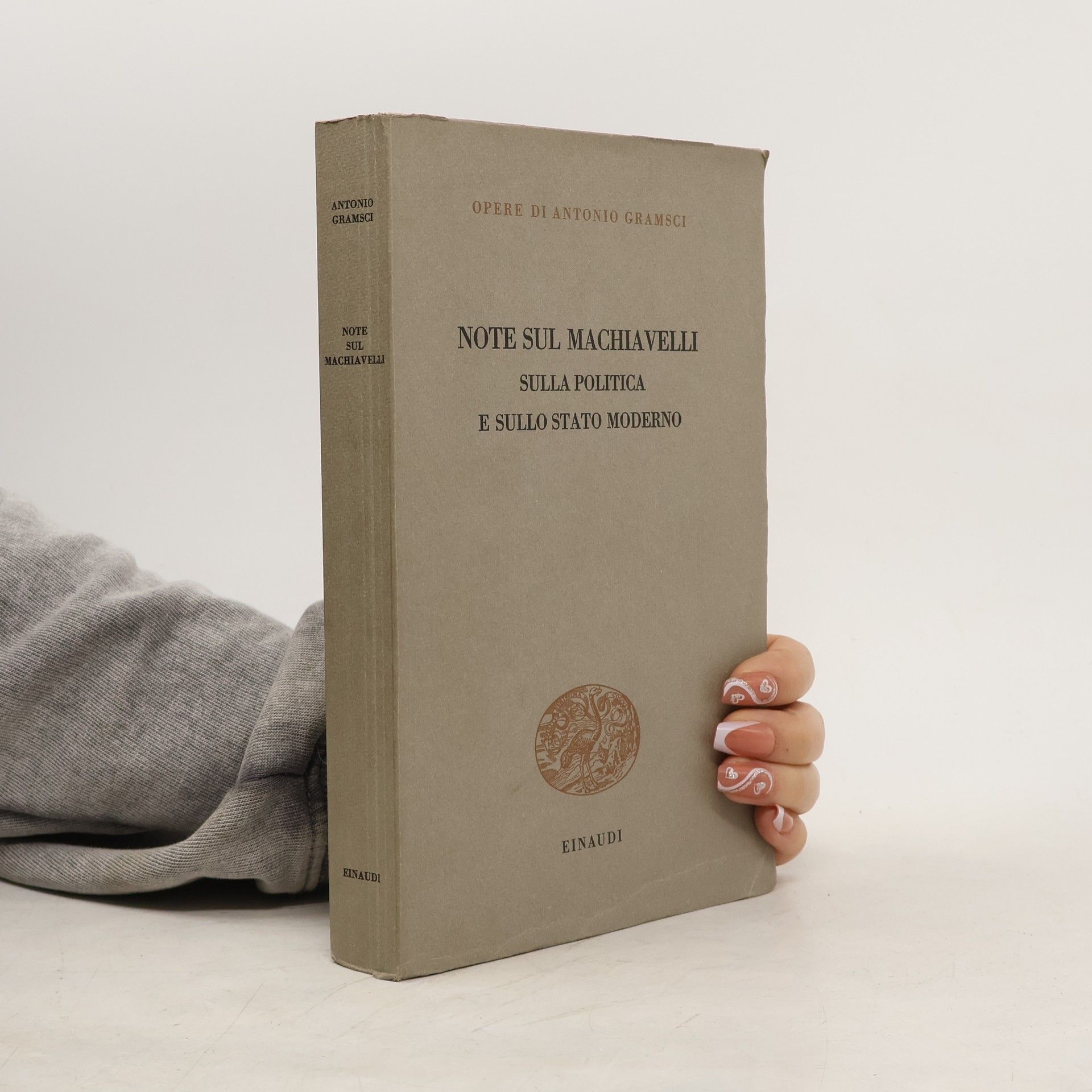Gefängnisbriefe / Gefängnisbriefe Band IV
Briefwechsel mit der sardischen Familie 1926–1936
Antonio Gramsci è stato un pensatore profondamente originale il cui lavoro approfondisce l'analisi della cultura e della leadership politica. Figura significativa della tradizione marxista, è rinomato per il suo concetto di egemonia culturale, che spiega come lo Stato mantenga il potere in una società capitalista. Gli scritti di Gramsci, plasmati dal suo impegno politico e dalle sue esperienze, offrono acute intuizioni sulla relazione tra potere, cultura e ideologia. Le sue idee continuano a influenzare profondamente le discussioni teoriche sul controllo sociale e sulla trasformazione politica.







Briefwechsel mit der sardischen Familie 1926–1936
Antonio Gramscis Begriff der Subalternen ist im Kontext der Postkolonialen Studien von großer Bedeutung. In seinen »Gefängnisheften« entwickelt Gramsci diesen Begriff und verknüpft ihn mit der »Frage des Südens«, die sich auf die strukturelle Ungleichheit in Italien bezieht und die Hegemoniefrage territorialisiert. Der Reader enthält mehrere Frühschriften aus den Jahren 1919–1926, in denen Gramsci die politische Relevanz der Südfrage für die hegemoniale Strategie der italienischen Arbeiterbewegung analysiert. Besonders hervorzuheben ist der Aufsatz »Einige Gesichtspunkte der Südfrage« (1926), der eine Schlüsselrolle für sein Hauptwerk spielt. Er wird ergänzt durch Gramscis Beitrag zum III. Parteitag des PCI, die »Thesen von Lyon«, sowie Artikel aus dem Ordine Nuovo. Die kommentierte Neuübersetzung berücksichtigt den aktuellen Stand der Reflexion zu Gramscis Sprache und Begrifflichkeiten. Der zweite Teil des Readers enthält Auszüge aus den »Gefängnisheften«, in denen die Analyse der Südfrage vertieft wird, sowie zentrale Passagen zur Theorie der Subalternen. Diese verdeutlichen, dass der Begriff nicht lediglich das Proletariat bezeichnet und dass subalterne Gruppen nicht nur im Süden, sondern auch »an den Rändern der Geschichte« zu finden sind.
This volume presents the first complete translation of Antonio Gramsci's notes on the concept of subalternity, including the prison notebook devoted to the theme of subaltern social groups. It includes a critical apparatus that clarifies Gramsci's history, culture, and sources and contextualizes these ideas against his earlier writings and letters.
A collection of letters is also essentially a biography – here of a man recognized as one of the twentieth century’s leading thinkers. By translating and presenting for the first time many letters previously overlooked by other volumes, this collection greatly expands what the English-speaking world knows of him, both politically and personally. These extracts from his pre-prison correspondence—with his wife and her sister, international communist leaders, and fellow Italian revolutionaries—show his most important ideas at their beginnings, and give a well rounded picture of Gramsci’s political, intellectual, and emotional development. Antonio Gramsci (1891–1937) was a founding member of the Italian Communist Party, and among the twentieth century's most influential theorists.
"Credi che la corrispondenza mi preme molto: è il solo legame che mi unisce al mondo ed è ciò che rompe di tanto in tanto la mia segregazione e il mio isolamento" scriveva Antonio Gramsci (Ales, 1891 – Roma, 1937) alla cognata Tania nel maggio 1927 dal carcere. Gramsci era stato condannato a 20 anni nel 1926 per ordine del regime fascista. Durante la prigionia scrisse numerose lettere ad amici e familiari, fin quando gli fu concessa la piena libertà il 21 aprile 1937, per gravi problemi di salute che lo portarono alla morte una settimana più tardi. Questa raccolta comprende le lettere scritte tra il 1926 e il 1936, le quali offrono uno sguardo sul mondo intellettuale e privato di un personaggio chiave della storia italiana, tra aneddoti quotidiani e riflessioni morali, tra piccole gioie, come una rosa che fiorisce o un passerottino che si fa imboccare di briciole, e grandi dolori, come la malattia, l'isolamento o le incomprensioni e i rimproveri a coloro da cui Gramsci si sente sempre più abbandonato.
This collection offers an in-depth exploration of Antonio Gramsci's insights into the interplay between culture and politics. It presents a wide array of his writings, making his complex theories accessible to English-speaking audiences. Through Gramsci's lens, readers will gain a better understanding of how cultural hegemony shapes political dynamics and societal structures, providing valuable context for contemporary political discourse.
Kritische Gesamtausgabe in 10 Bänden
The collection features Antonio Gramsci's poignant and intimate prison letters, providing a profound insight into his thoughts and experiences during incarceration. Recognized as the definitive edition, it offers readers an authoritative perspective on Gramsci's reflections on politics, culture, and personal struggles, showcasing his literary prowess and philosophical depth. This edition stands out for its completeness, making it an essential resource for understanding Gramsci's legacy and influence.
Based on the authoritative Italian edition of Gramsci's work, 'Quaderni del Carcere', this translation presents the intellectual as he ought to be read and understood.